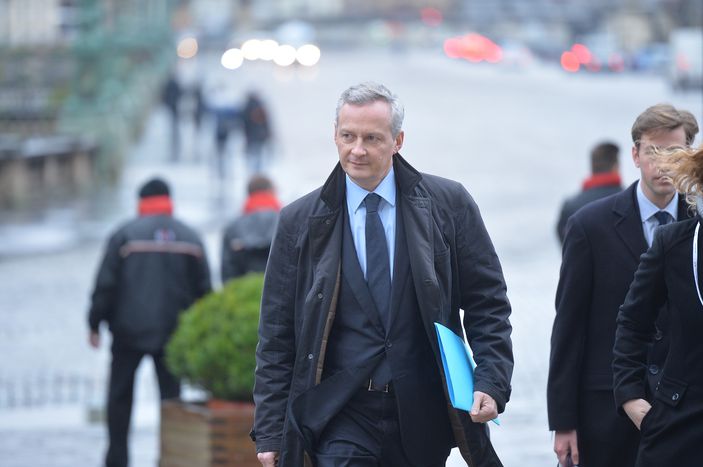
Why is 2009 a crucial year for Europe?
Published on
5th February 2009, London
by Katherine Short. "Coordination is a difficult but vital task for all countries"
The French Secretary of State for European Affairs, Bruno Le Maire, came to the London School of Economics this evening to talk about the role of Europe in the next year as a result of the economic downturn.
He highlighted the need for greater cooperation in both facing the economic and geopolitical challenges ahead, arguing that 2009 will be a turning point in both spheres.
Bruno Le Maire was appointed the position of Secretary of State for European Affairs in December 2008. Before that he was a member of the National Assembly of France. He was also the Principal Private Secretary to the Prime Minister between 2006 and 2007. He is a member of the Union for a Popular Movement.Bruno has been National Assembly deputy for Eure since 2007, and is a member of the National Assembly Finance Committee.
Le Maire highlighted Europe's important role in the construction of a new world order, post economic downturn, repeatedly emphasising Europe as a solution to the crisis. In a 'crisis of historic dimensions' and an 'unprecedented world shock', he argued the great need for Europe to change its old habit of looking inwards and instead to look outwards and to create a global influence. The EU can now be seen as an example to look to as a force for solving global issues, furthermore Europe must be ready to be strong and be prepared to take upon the important global role waiting for it.
While states in the next few years will be under increasing pressure to preserve jobs in their own nation, Le Maire was of the opinion that such preservation needs to be regulated under a tight European framework. In a time of recession there needs to be greater European unity to ensure that as a union, we keep the trade industries alive instead of nations competing against each other until a point where there are no winners. It was clear that in times of such grave economic crisis cooperation, rather than competition, between European states is the best solution, in Le Maire's view, for all.
He argued for a stronger Europe and was hopeful that the EU Czech Presidency would help to build a strong European relationship. The importance of EU enlargement was also emphasised in helping to build a stronger European framework. Le Maire did, however, recognise the potential dangers of greater EU enlargement, arguing that the EU should only be as far as the Balkan states and no further. Instead he suggested a new union solution which would take accounts of the different levels of relationship that outer Europe states have with the EU.
Bruno Le Maire has been taking his time to emphasise these key points across Europe. He recently said "Each country is tempted to act according to its national specificity, more coordination on economic stimulus plans", a point he repeatedly emphasised through numerous examples tonight at the LSE.



